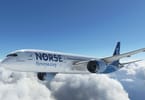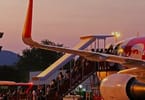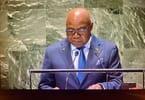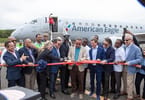DENVER — Higher airfares and trimmed flight schedules could end up raising the subsidies Colorado ski resorts pay airlines to bring out-of-state skiers to town this winter.
Nonstop flights to the mountains from cities like New York and Dallas are so important to many resorts that they offer subsidies to guarantee a minimum revenue to airlines who agree to offer the flights.
If airlines sell enough seats on each flight, not all the subsidies have to be paid.
This winter, airlines faced with rising fuel costs are cutting the number of flights they offer and raising fees, making it more difficult and costly for skiers to fly here. Now some resorts are raising their potential payments to airlines to offer direct flights to mountain airports.
“We’re seeing the single highest year-over-year cost increase ever,” said Andy Wirth, chief marketing officer for Intrawest, owner of Steamboat Ski Resort. “That’s the case at other resorts, too.”
Steamboat agreed to pay airlines as much as $2.8 million in subsidies, up 14% from $2.45 million last year, Wirth told The Denver Post. The resort also accepted slightly fewer flights than last winter, a record season.
Steamboat expects its actual costs to be between $1.5 million and $2.5 million, compared with $1.7 million last season, The Post reported.
The resort shares costs with a special district in the community that levies a 2% tax on hotel rooms. Last year, businesses in the area also contributed about $150,000.
Telluride, which is getting one more Chicago flight this winter, guaranteed airlines up to $1.96 million for service next winter, up from $1.16 million last season, said Tom Hess, president of the Telluride-Montrose Regional Air Organization.
Actual costs were $450,000 last year but are likely to rise this year because of fuel costs, Hess told The Denver Post. Telluride Ski Resort and the communities of Telluride and Montrose share costs.
Crested Butte’s cap on airline subsidies rose to $1.4 million from $1 million, but the resort secured several new flights, said Scott Truex, executive director of the Gunnison Valley Transportation Authority.
Crested Butte paid airlines $650,000 last winter, he said. The authority collects a sales tax and splits the cost with Crested Butte Mountain Resort.
Vail Resorts officials would not discuss their airline agreements.
Aspen does not pay airline subsidies.
Richard Scharf, president of the Denver Metro Convention & Visitors Bureau, told the Rocky Mountain News he expects the economy and rising fuel costs to affect tourism in every U.S. city.
But Anthony Townsend, research director with the think tank Institute for the Future in Menlo Park, Calif., said he expects geographically isolated places such as Colorado to suffer more than others.
Jan Freitag, a vice president at Nashville-based Smith Travel Research, said people will always travel though. “People are always trying to get away from wherever they are, even though they may trade down in their choices” of lodging and food and how long they stay, he said.
usatoday.com
WHAT TO TAKE AWAY FROM THIS ARTICLE:
- Nonstop flights to the mountains from cities like New York and Dallas are so important to many resorts that they offer subsidies to guarantee a minimum revenue to airlines who agree to offer the flights.
- The resort shares costs with a special district in the community that levies a 2% tax on hotel rooms.
- This winter, airlines faced with rising fuel costs are cutting the number of flights they offer and raising fees, making it more difficult and costly for skiers to fly here.





















